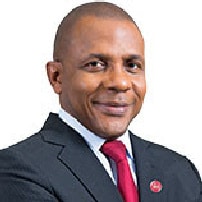CARICOM countries on track to achieve CWC 2007 security goals
GUYANA – The nine Caribbean Community (CARICOM) countries that will host matches for Cricket World Cup (CWC) 2007 are on track to achieve security goals in time for the March 2007 start of the world’s third largest sporting event.
“Most countries are into the stage where they’re starting to look at how they are going to do simulations and table top exercises and actually work those plans that they have come up with in the past year or so, and how they are actually going to work out in real time. So that’s the general state of the Region… at the moment,” said Colonel Antony Anderson, Regional Operations Commander, the CARICOM Operational Planning and Coordinating Staff (COPACS) in Georgetown on December 15.
Colonel Anderson and his team were in Guyana for a series of meetings with a national team of security planners, command staff and logistic elements headed by Guyana’s Minister of Home Affairs, the Honourable Clement Rohee. Colonel Anderson was among officials who briefed the media on Friday 15. The others were Home Affairs Minister, Commissioner of Police Mr. Henry Greene, and Assistant Commissioner of Police, Mr. Paul Slowe, who is spearheading security arrangements for Guyana’s leg of the tournament.
Established by the CARICOM Heads of Government at their meeting in July 2006 in St. Kitts and Nevis, COPACS’ function is to secure the Region for CWC 2007. In this regard Colonel Anderson and his team by the end of January 2007, will complete visit to all the hosting matches for the tournament.
Among COPACS’ mandates are to provide and coordinate the Region’s assets to assist deficient countries which are hosting the matches, and to ensure common standards across the Region. With the Single Domestic Space created for CWC 2007, one country is dependent on the other to secure its borders.
“Everyone in the process would like to know that what is happening in another country will sufficiently protect them from any of the things that they would normally protect themselves from,” said Colonel Anderson.
He added that one of the first things his team looks for in its visits to the host countries is whether there is an understanding of the magnitude and scale of the event. In addition to creating an environment that will encourage visitors to enjoy what the Caribbean has to offer, those countries must also put measures in place to deal with “hostile persons with criminal intent”.
“It is of course the balance of these two things that will make for a successful regional and national approach to this tournament,” Colonel Anderson said.
Though work varies from state to state, countries are well advanced in their security preparations. Mr. Slowe pointed out that every aspect of the tournament had a security component and indicated that Guyana was at the point where it was conducting training exercises for security personnel of both the private and public sectors, seeking specialist assistance and preparing for two cricket matches to test its preparedness. Commissioner Greene said discussions with Colonel Anderson included forms of assistance with regard to a bomb disposal unit, as well as help to deal with hazardous material.
With regard to garnering international assistance to achieve security goals, Colonel Anderson said that letters have been exchanged between CARICOM and Brazil and there have been meetings with Regional Diplomats and at the Resource Mobilisation Committee level.
There is a CARICOM Resource Mobilisation Committee on Cricket headed by Minister of National Security in Jamaica, Dr. Peter Phillips. That Committee is coordinating with a UK-based team which has experience from the Athens Olympics. Together, Colonel Anderson said, they will consider approaching the international community for assets and/or assistance for foreign engagements in the Region.
“Once that sort of asset is donated or available to us, then it’s our job to see how we coordinate that and fit that in with the overall security architecture that we are trying to develop,” Colonel Anderson said.

